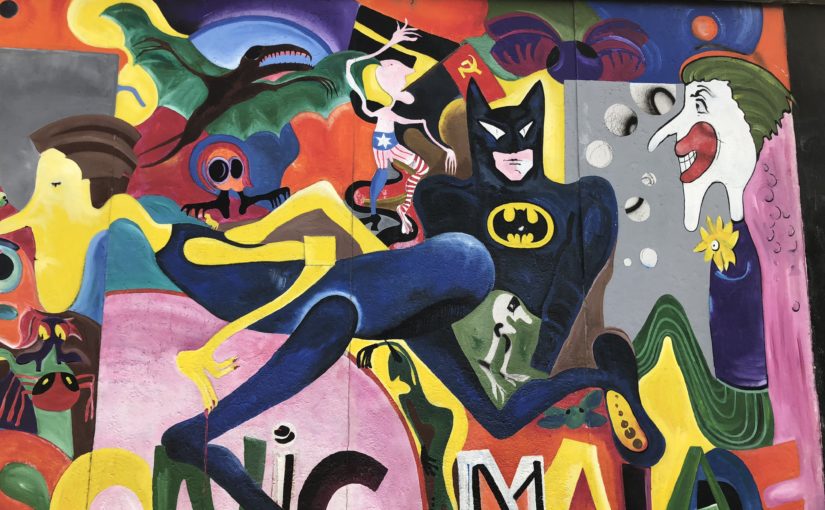This past week I was able to engage in the culture more than I have in the past weeks. After my first class on Monday, I started out the week working out at the gym I have been able to use through Notre Dame. I have been following my intense workout regime that our football strength and conditioning coach planned for me throughout the summer. After having been in South Bend last summer, I remember the intensity of the workouts, so it has been a challenge recreating that atmosphere, but the gyms in Berlin are well equipped and there are plenty of parks to get footwork in on the field. After my workouts, I will either go home and cook a meal filled with carbs, proteins, and other nutrients, or I will eat at my favorite Vietnamese restaurant, Dong Do. I learned that the Vietnamese presence in Berlin grew rapidly in the 1970’s, and since then there has been a good amount of Vietnamese restaurants, stores, and marketplaces showing up around the city. The food at Dong Do is to die for, and I make my way there at least once a week.
On Tuesday, I gave a presentation in German on a “vacation region” in my homeland. I chose Phoenix, and discussed the beautiful hikes, sports teams, and bodies of water that come with this city. Everyone else in the class presented on their respective homelands, including Uzbekistan, Russia, Syria, Mexico, Italy, Venezuela, and others. Being able to speak about one’s culture in another language is very important for people, so it is definitely a skill I would like to use when speaking to other German natives. That same day I also played in a soccer tournament against a refugee team and two other German high school teams. Sadly, we got demolished, but it was awesome to see how these kids were working to perfect their soccer and communication skills with each other. It is so interesting to see soccer dominate the sports world in these European countries, as the U.S. does not highlight soccer nearly as much as football, basketball, and baseball.
In the middle of the week, I took a taxi and noticed something that stuck out to me. The taxi driver pulled up to a red light, looked over at the car next to us, and said something friendly to the driver in Turkish, and drove away. I asked the driver if he knew that man, and he explained to me that nearly all of the taxi drivers knew each other and were friends. He also explained how he had immigrated to Germany for better opportunities. We had a great conversation, and I was able to explain the stories of my Turkish friends from my language school, including the background of my friend Göktürk’s name and how it literally translates to jumping Turkish man. It was a quick moment from my week, but I definitely enjoyed talking to him. Another amazing treasure that Turkish culture has brought to Germany is the döner, a kebab of meat that is sliced with vegetables and sauce and thrown together in bread to make a delicious meal. This is a very cheap meal and has been my guilty pleasure on the this excursion.

On Wednesday, I went to the Berlin Philharmonic and saw Sir Simon Rattle’s last indoor performance as a conductor, after having performed at the Philharmonic for the last 31 years. He performed the same 90 minute piece that he opened with at the Philharmonic 31 years ago. It was an incredibly emotional composition, stringing together, violins, harps, percussion, piano, trumpets, and other instruments. The acoustics in the Philharmonic are beautiful, and the sound surrounded me as I closed my eyes. This was the first symphony that I had ever been to and I loved it.

The following day, I toured Neuköln, a neighborhood in Berlin that houses more than 160 different nationalities. The tour guide was a Syrian refugee who explained to us his difficult journey from Syria to Berlin, including years of failed and dangerous attempts to travel between countries without proper identification. It was an incredibly sad story that ended with a successful reunion of his wife and child in Berlin after years of uncertainty. The tour was centered around the Arabic influence in Neuköln and involved attempting to decipher Arabic words and phrases on local businesses. We ended the tour at a restaurant called “Aldimashqi”, where I ordered fried chicken with seasoning I had never tasted with chicken. It was so delicious that I went back the next day. On Saturday, I went to a restaurant to watch the Germany v. Sweden World Cup game. This was a very intense game because Germany had lost to Mexico, so the pressure was on to win this game to keep their hopes alive. Sweden scored, then Germany tied it up. With 30 seconds left to go in the 95 minute match, Germany had one last chance to score. They set up a shot with a deceptive play, and bended the ball at the perfect angle to score and keep Germany’s flame alive. The entire crowd at the restaurant exploded with joy and cheers for the next five minutes. It was definitely an experience that does not come around too often, and now I look forward to watching Germany take on South Korea this week.


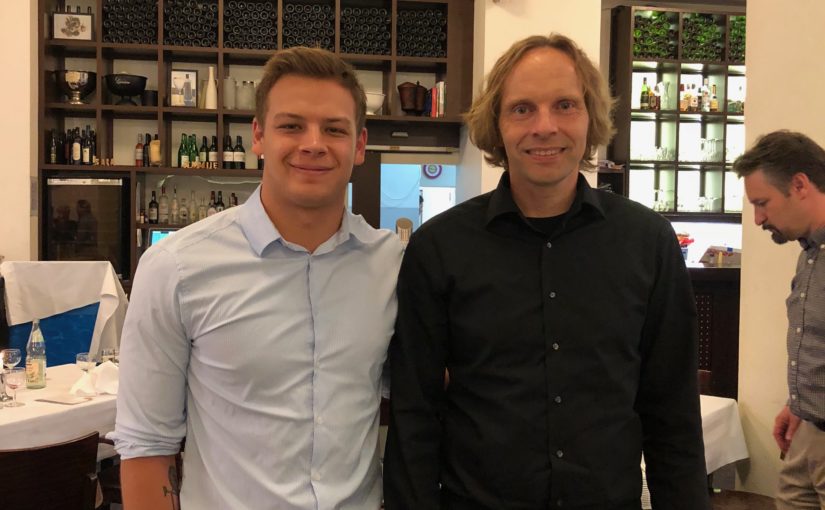
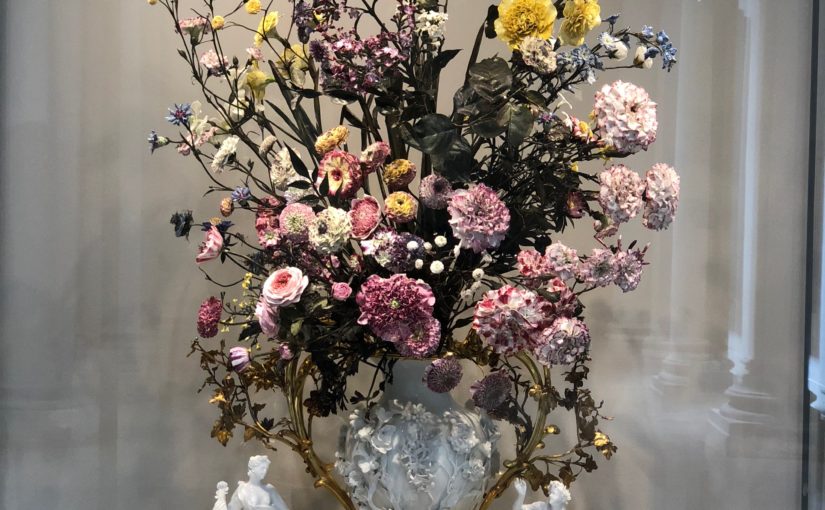





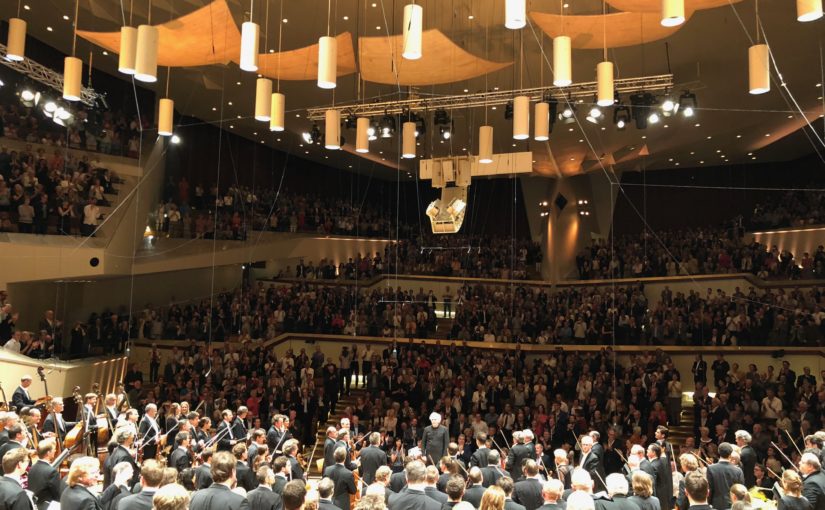


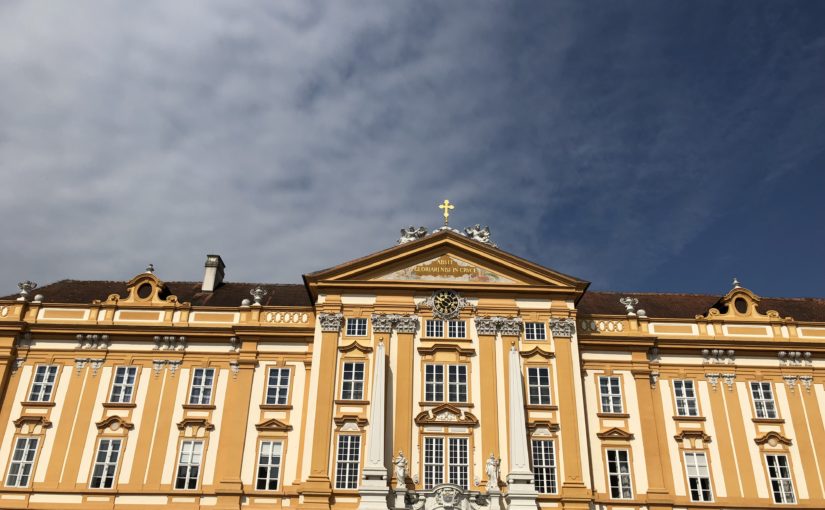
 Later on in the week, I had a weekend trip planned to Vienna, Austria (Wien, Österreich in German). I looked forward to visiting this country because the primary language spoken there is also German! It was another place I could practice my speaking and reading skills. While in Vienna, I visited Schönbrunn Palace and Gardens, a
Later on in the week, I had a weekend trip planned to Vienna, Austria (Wien, Österreich in German). I looked forward to visiting this country because the primary language spoken there is also German! It was another place I could practice my speaking and reading skills. While in Vienna, I visited Schönbrunn Palace and Gardens, a 


